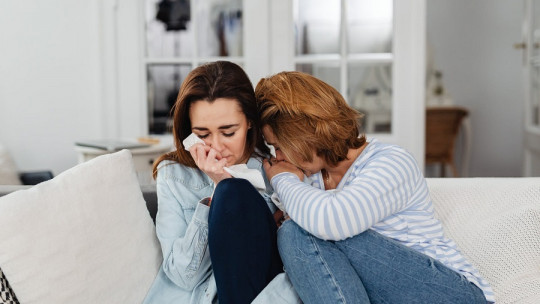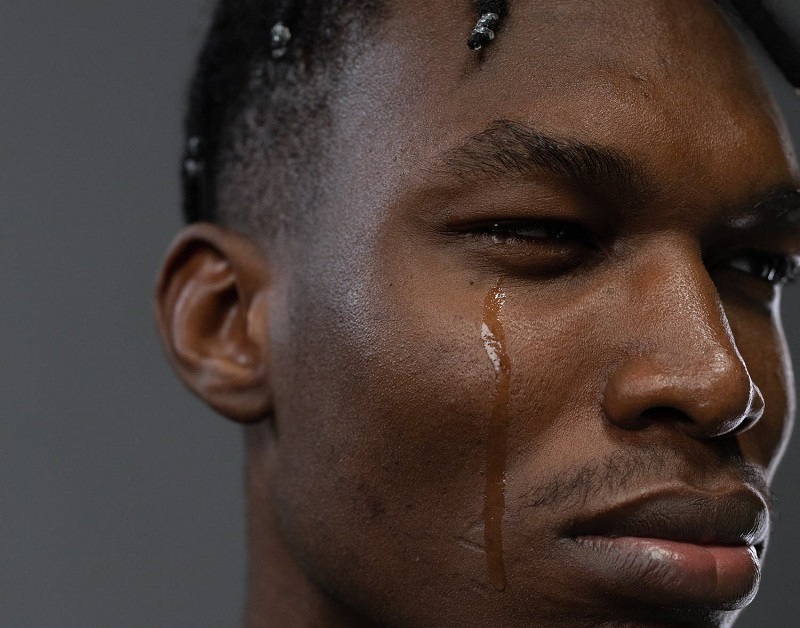
There are many forms of psychological grief caused by significant losses. For example, the loss of a job, a partner, a change of school, the loss of a loved one, the loss of health, and perhaps even the loss of a pet.
In this case I want to delve into the loss of a relationship which has its own characteristics.
The keys to grieving a love breakup
It is very common that, when a romantic relationship ends, in a very short time people believe and feel that they are recovered or as if nothing bad had happened to them ; They even begin the search for a new partner again, as if “throwing things under the rug.” That is, taking their own emotional problems into the next relationship.
Those emotional problems or personality factors that influenced 50% in that breakup probably continue to be in people, unresolved, some time later. And they can even lead to codependency or an unwanted quality of life.
Also It is common for friends or family of people involved in that breakup to invite the person in question to have fun, have fun, go out even with other potential partners, with the desire not to see them cry or suffer; Obviously they do this out of love, however, most of the time those who love us the most are the ones most likely to end up harming us.
It is harmful to pretend that nothing happened and ask the person who suffered a loss to act strong, distract themselves, or simply find another person to fill the void. It is harmful because they are not allowing you to grieve correctly, since the only thing that being strong generates is a backlog of negative and unprocessed emotions.

To do?
The normal thing for people who lose a partner should be to wait a considerable amount of time (more or less 6 or 9 months at least) alone, learning to deal with their own loneliness, understanding it, processing it, and thus reducing the great feeling of emptiness. Allowing yourself this time alone means going out to the movies, theater, shopping, and doing the hobbies you usually enjoy, but with yourself. And of course, When you feel needy, cry and feel sad, angry, wanting to get that relationship back and finally accepting the breakup
Precisely these last emotions represent, according to some authors, the stages of grief. There are researchers who propose more stages, but in summary, the phases of grief are: Denial, sadness, anger, bargaining or the desire to recover what was lost and finally acceptance. These stages do not have a chronological or precise order, but it is essential to go through them all in a constant swing and let the emotions corresponding to each of them flow.
The loss of a partner is a huge opportunity to rework emotions, triggered in the present but that have their roots in the first stages of the person’s life. So far from what is believed, the best thing when grieving for love would be to face those intense emotions, learning to enjoy one’s own company.
The ideal when something like this happens will always be get rid of every vestige that person remembers (in a negative and even positive way), so that the only thing that remains at the end is a more emotionally neutral memory. It is worth mentioning that the key words to go through this process and finish in an ideal way are: I love you, I forgive you, thank you and I’m sorry.
Once these words can be said sincerely (and in an imaginary way), the person will most likely have overcome that loss.
What can happen when faced with a poorly managed grief due to a breakup?
On the other hand, when grief is not adequately processed, the consequences of this can be quite serious, since this can become pathological and become incorporated into the person’s life without them noticing it. Besides, You will be repeating the same behavioral patterns as long as you continue to avoid that breakup
Even sometimes, some people who do not correctly process a loss cannot be relieved with the support of psychotherapy alone, but require psychiatric and pharmacological support.
Clinically speaking, in cases like this, problems such as anxiety attacks or depression could arise. This last psychopathology involves spending several months experiencing irritability, sadness, eating problems, lack of interest in things that previously interested you, lack of hygiene… with which The person will not be able to live a dignified life with everything they would like which he truly deserves just for being human.
It could be the case that all the shortcomings or issues that need improvement in a person’s life even revolve around one or more previously unresolved griefs. It occurs in people very anchored in what could be called melancholy or discouragement most of the time
For all of the above, we must consider it very important to allow ourselves to be vulnerable and ask for professional psychotherapeutic help without any kind of prejudice, since it is a process focused on our own well-being and to be able to build a life as best as possible, without repeating patterns. behavioral and perhaps even harmful family problems, learned from unresolved or processed emotional deficiencies from the first years of life.
Of course, No person is born with all the skills to enter life in an ideal way but he who accepts help intelligently is braver and stronger…








